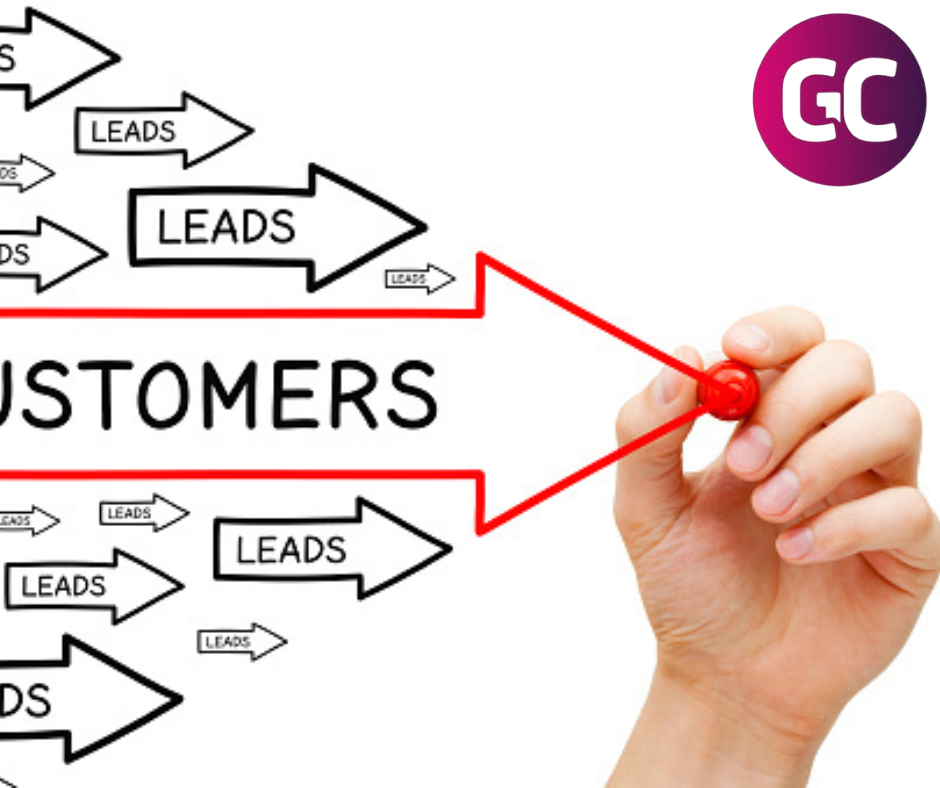This article will explain what lead qualification is, why it is important, and how to automate the process for your sales team.
Marketing and sales can be challenging, especially when it comes to turning leads into paying customers. Having a large number of leads is great, but it doesn’t guarantee profits. The key is to convert those leads into customers who will make purchases.
But how can you determine which leads are most likely to convert into sales? One solution is to qualify your leads. It involves assessing the potential value of each lead, based on factors such as their level of interest, budget, and authority to make purchasing decisions. By doing so, you can focus your sales efforts on the leads that are most likely to convert into paying customers.
In this article, we will provide guidance on how to automate lead qualification, enabling your sales team to focus their efforts on the most promising leads.
How the Lead Qualification Process is Implemented
The process used by marketing and sales teams to figure out how likely it is that a sales prospect will make a purchase in the future.
This process happens at every stage of the sales journey, and prospects who show interest and potential in a future sale continue through the funnel. However, if a lead doesn’t seem like they will make a purchase, they can be removed from the funnel to focus on other prospects.
During the marketing stage, your marketing team collects contact information and evaluates whether each lead matches your company’s ideal consumer profile, which constitutes the initial step.
If the lead is qualified, they move on to the next step, a discovery call from your company’s sales representative. During this conversation, the sales rep uncovers the prospect’s needs, project timeline, purchasing authority, and budgetary constraints.
The information gathered during the discovery call helps determine whether the prospect is a viable sales opportunity, and whether it’s worth the time and effort to craft a proposal. If it’s not worth pursuing, it’s helpful to recommend a better fit for their needs.
Leaving even “dead end” interactions on a positive note could lead to future business from that lead or referrals to other qualified people.
Different Frameworks for Qualifying Sales Leads

While lead qualification is the process of assessing a lead’s potential as a customer, some leads may present more challenges in terms of qualification. However, some leads are more difficult to qualify than others. To make the process more effective, a data-driven, result-oriented framework is required. Some common frameworks are BANT, CHAMP, and MEDDIC.
BANT stands for Budget, Authority, Need, and Timeline. This framework focuses on determining whether a prospect has the budget to purchase your product or service, whether they have decision-making authority, whether they actually need your product or service, and how ready they are to make a purchase. BANT is a good fit for expensive products or services or for B2B brands where decision-makers and influencers are important.
CHAMP stands for Challenges, Authority, Money, and Prioritization. This framework prioritizes a lead’s challenges and ensures that your product or service can solve their pain points. By identifying a lead’s challenges, it becomes easier to lead them to a buying decision. CHAMP is a great fit for situations where some leads may not understand your offerings.
MEDDIC is a highly effective, but complex lead qualification technique that focuses on a range of factors such as metrics, economic buyers, decision criteria, decision process, pain point identification, and champions. To successfully apply a MEDDIC framework, you need to collect detailed information about your potential customers. MEDDIC works well for businesses with relatively low volume of high-ticket sales, like software vendors.
In conclusion, understanding different frameworks can help you convert cold leads into qualified leads by identifying the best prospects for your products or services.
The Importance of Lead Qualification for Sales Success
To put it simply, lead qualification is important for successful sales. Let’s compare two companies, Company A and Company B, to see the difference.
Company A does not use qualification in its sales process. As a result, every lead that comes in is sent directly to a sales rep, who then spends about 5 weeks trying to convince the lead to buy. But when it comes time to close the sale, it turns out that the lead isn’t a good fit for the product. This means all the time and resources that the sales rep spent trying to sell to the lead are wasted, and the company’s profits decrease.
On the other hand, Company B qualifies its leads before sending them to the sales team. So when Sales Rep Sarah receives the same lead that Sales Rep John did, she quickly determines that the lead is not a good fit and avoids wasting resources trying to sell to them. This saves the company time and effort, and ultimately leads to more profitable sales.
The Role of Qualified Leads in the Sales Process
Lead qualification is typically done before leads enter the sales cycle, between the stages of being considered cold traffic and becoming full-fledged prospects. This step is crucial, which is why it’s important to have a well-structured plan for your sales funnel. Without understanding the typical path customers take towards making a purchase, it can be difficult to integrate lead qualification into their journey.
Criteria and Stages
Let’s explore how to figure out if a lead is ready and willing to buy. By doing so, you can distinguish which leads have the most potential and which ones have the least. Generally, leads can be qualified by understanding their goals, pain points, budget, and purchasing authority.
In this, there are two main stages: marketing and sales. Marketing qualification is done by the team responsible for all the marketing activities, while sales qualification confirms information from a sales perspective. The ideal situation is when the number of marketing qualified leads (MQLs) and sales qualified leads (SQLs) are equal. If the sales team rejects too many leads, then the marketing qualification criteria needs to be adjusted or new conditions need to be added.
To achieve this, you can use a marketing CRM and require a higher lead score before considering an MQL ready to purchase. In addition to using a drip campaign to cultivate engagement from the most promising leads, you may request further details from decision-makers in the sign-up form.
Understanding the Difference Between Marketing and Sales Qualified Leads
When a company wants to make a profit, both marketing and sales play important roles, although they are not the same thing. Many companies, especially newer ones, often make the mistake of thinking that sales and marketing are the same thing. To improve your sales funnel, it’s essential to understand the difference between the two processes.
The difference between Marketing Qualified Leads (MQLs) and Sales Qualified Leads (SQLs) lies in their level of interest in your product. MQLs have shown interest in your product, and may be worth pursuing down the sales funnel. SQLs, however, are more likely to make a purchase, having not just shown interest, but also the potential to become a loyal customer if they are nurtured and guided down the sales funnel.
Streamlining Lead Qualification with Automation Software
In the past, sales teams had to manually qualify leads by asking questions to assess each lead’s potential interest and fit for their product. This was typically done through phone calls or face-to-face meetings. However, this process could become problematic as the number of leads increased, and the amount of time needed to qualify each lead became a constraint.
To solve this issue, companies can use automation software to streamline their marketing and lead generation efforts. By automating marketing activities like email sequences and follow-up messages, companies can qualify leads in a more efficient and personalized manner. This allows them to respond to consumer behavior, just as a human would, while also extending the capabilities of a small sales team.
For example, car company Nissan uses email marketing automation to remind customers of their vehicles’ maintenance schedule, generating leads for their network service stations. Automating marketing efforts helps companies manage a larger volume of leads while retaining the relevance of their marketing efforts for each prospect.
The Role of Contact Scoring in Marketing Automation for Lead Qualification
The quality of leads has been a topic of debate between sales and marketing departments for a long time. However, market automation is a solution that can help bridge the gap.
Market automation has impressive capabilities when it comes to qualifying leads. One of the commonly used techniques is contact scoring, which involves assigning a numerical value to leads based on their level of interest in your product or service.
Using contact scoring, you can assign points to the actions that are most valuable to your business, such as visiting your pricing page or requesting a demo. These scores help determine how active and interested a lead is in your business.
Benefits of Marketing Automation in Lead Generation and Qualification
Marketing automation is a system that can help you generate leads more efficiently. This system is designed to ensure that the leads given to sales teams are of high quality. It does this by converting website visitors into leads and guiding them towards being ready to make a purchase.
Marketing automation also helps save time and resources by filtering out leads that are not likely to become customers. This way, only the leads with potential continue to move through the process of becoming qualified for sales.
How Automation Can Enhance Sales Team Efficiency and Productivity
Creating a lead generation flow for your business is a powerful strategy. It enables businesses of any size to streamline the top of their sales funnel, where leads are unqualified, and personalized communication is not necessary. This saves resources that can be spent on closing deals with your top prospects rather than wasting them on dead ends.
Automation can also benefit sales teams during various stages. Early on in handling a lead, such as when they’ve had their first conversation with sales and are assessing the product/service, follow-up automation can be useful. This automation could include sending a few informational emails to provide a pace for the amount of information given at any one time. Then, after a set duration, the automation will prompt the sales rep to follow up with a phone call.
However, automation is not ideal for handling complex tasks or those that involve emotions and intuition. That’s where sales reps can excel the most. In general, automation is most effective at reducing the number of simple, repetitive tasks that sales and marketing teams have to complete.
Lead Generation Marketing Components: Tools for Automating the Process
Automation can simplify and expedite the process of generating and qualifying leads. There are several tools that help achieve this, such as landing pages, which are where website visitors convert into leads through conversion forms. As leads provide more information, they can be segmented for further email campaigns and sales insights.
Email autoresponder campaigns can also be triggered by landing pages through drip campaigns and autoresponders. These campaigns enable personalized follow-ups with prospects, making them effective in sales processes.
In addition to the aforementioned tools, there are programs that help automate the lead qualification process. The two main options are Customer Relationship Management (CRM) software and contact scoring software. The latter scores each lead based on a set of criteria, giving an idea of their value as a prospect. While it provides useful information at a glance, some apps lack transparency in their scoring methods and focus solely on contact scoring.
On the other hand, CRM software offers a range of features to aid in the sales and marketing processes, including a lead scoring system that allows customization of scoring parameters. This provides greater flexibility and integration with the sales cycle.





